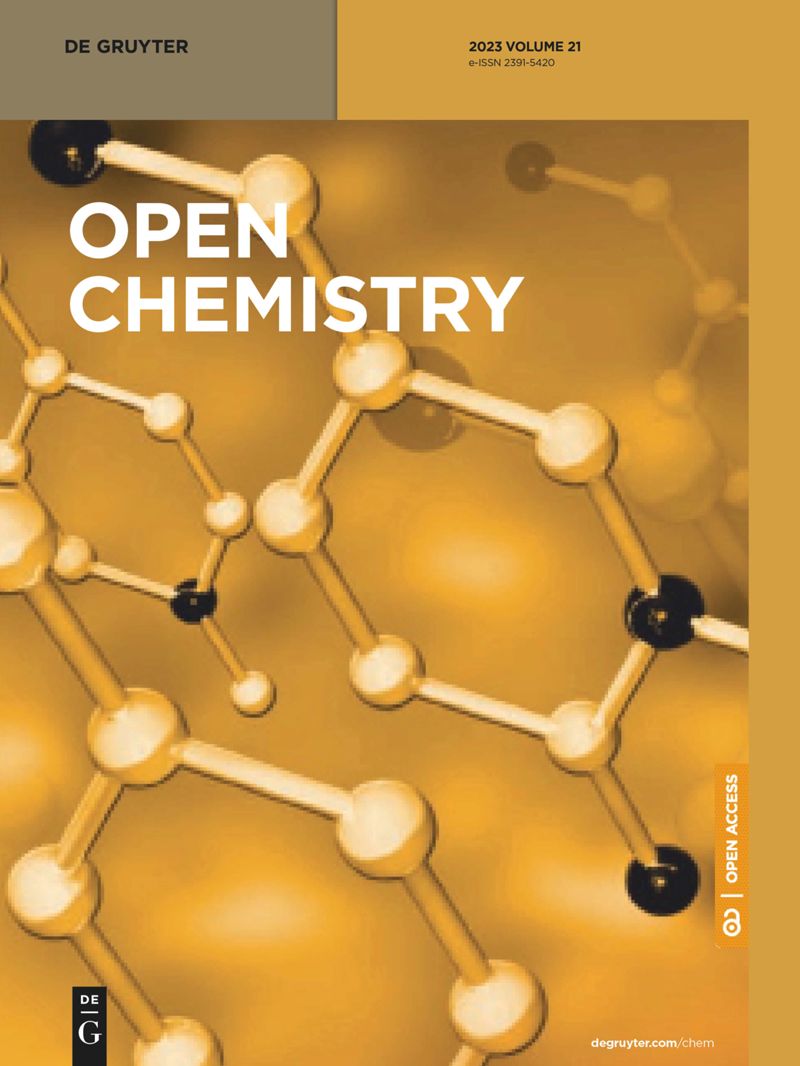Curcumin conjugated zinc nanoparticles for the treatment of myocardial infarction
IF 1.9
4区 化学
Q3 CHEMISTRY, MULTIDISCIPLINARY
引用次数: 0
Abstract
A modern cardioprotective drug was created by utilizing zinc nanoparticles (ZnNPs) containing curcumin to address isoproterenol-induced myocardial infarction in mice, with a specific focus on the PPAR-γ/NF-κB pathway. During the用于治疗心肌梗死的姜黄素共轭锌纳米粒子
通过利用含有姜黄素的锌纳米粒子(ZnNPs)来解决异丙肾上腺素诱发的小鼠心肌梗死问题,并特别关注 PPAR-γ/NF-κB 通路,从而创造出一种现代心脏保护药物。在体内研究中,小鼠通过皮下注射异丙肾上腺素,剂量为 40 毫克/千克,每 12 小时一次,共注射三次,从而导致心肌梗死。小鼠被随机分为五组:(I、II) 不同浓度(10、40 μg/mL)和时间间隔的异丙肾上腺素+ZnNPs组;(III) 单用异丙肾上腺素组;(IV) 对照组。利用傅立叶变换红外光谱、场发射扫描电子显微镜、X 射线衍射分析、傅立叶变换红外光谱和能量色散 X 射线光谱等多种理化方法对 ZnNPs 进行分析和表征。利用实时 PCR 和 Western 印迹方法检测了脂多糖(LPS)对 PPAR-γ/NF-κB 的激活作用以及随后的细胞因子释放。这项研究的重点是调查经 LPS 处理的人冠状动脉内皮细胞的炎症反应和细胞凋亡。治疗后,使用心电图检查心脏功能,并进行生化和组织化学分析。通过引入 ZnNPs,心肌梗塞小鼠心脏的炎症症状有所减轻。使用 ZnNPs 不仅能改善心室壁梗死,还能降低死亡率并抑制心肌损伤标志物的水平。使用 ZnNPs 治疗后,心肌梗死小鼠通常出现的 ST 段压低现象明显减少。与使用异丙肾上腺素后组的小鼠相比,使用 ZnNPs 治疗前 + 异丙肾上腺素后组的心肌梗塞小鼠似乎具有更明显的心脏保护作用。在体外实验中,使用 ZnNPs 能显著减少细胞死亡和抑制炎症细胞因子的表达。PPAR-γ/NF-κB/IκB-α/IKKα/β 的基因表达正常化以及 PPAR-γ 的磷酸化可能与 ZnNPs 的有益作用有关。ZnNPs 能有效防止炎症反应的升高。本研究结果表明,ZnNPs 对异丙肾上腺素诱发的心肌梗死具有心脏保护作用。这种积极影响可能与 PPAR-γ 激活和 NF-κB 信号抑制有关。
本文章由计算机程序翻译,如有差异,请以英文原文为准。
求助全文
约1分钟内获得全文
求助全文
来源期刊

Open Chemistry
CHEMISTRY, MULTIDISCIPLINARY-
CiteScore
3.80
自引率
4.30%
发文量
90
审稿时长
6 weeks
期刊介绍:
Open Chemistry is a peer-reviewed, open access journal that publishes original research, reviews and short communications in the fields of chemistry in an ongoing way. The central goal is to provide a hub for researchers working across all subjects to present their discoveries, and to be a forum for the discussion of the important issues in the field. The journal is the premier source for cutting edge research in fundamental chemistry and it provides high quality peer review services for its authors across the world. Moreover, it allows for libraries everywhere to avoid subscribing to multiple local publications, and to receive instead all the necessary chemistry research from a single source available to the entire scientific community.
 求助内容:
求助内容: 应助结果提醒方式:
应助结果提醒方式:


